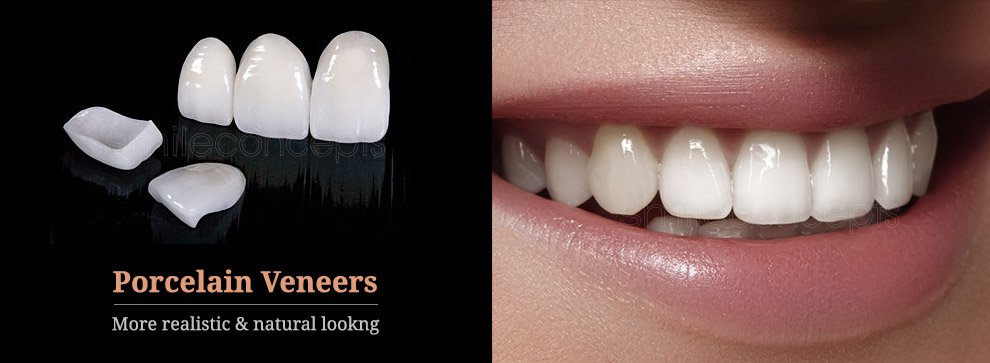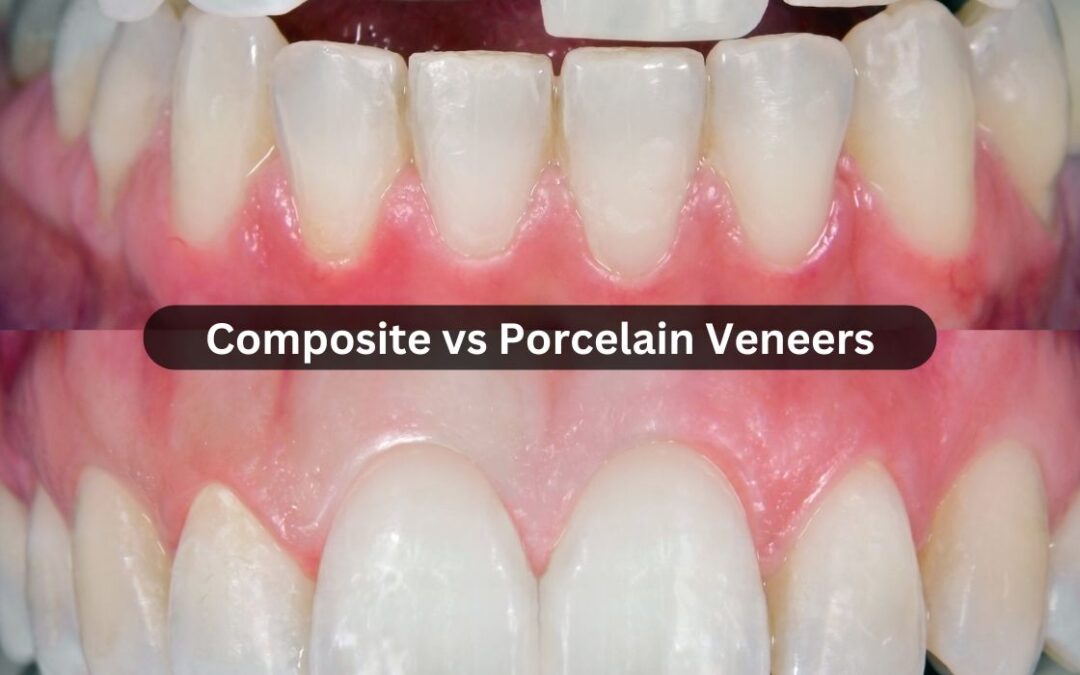Understanding Veneers Teeth Options for a Brighter, Confident Smile
Opening the Tricks of Veneers: Realities, Kinds, and Advantages for a Gorgeous Smile
Veneers offer a compelling option for those seeking to enhance their smiles. These dental enhancements can attend to different blemishes, from staining to imbalance. With options like porcelain and composite, individuals can select based upon their choices and needs. However, understanding the subtleties of veneers, consisting of application and treatment, is important. What aspects should one take into consideration prior to making a choice? The responses may amaze those curious about this visual dental alternative.

Recognizing Veneers: What Are They?
Veneers are thin, custom-made coverings created to cover the front surface of teeth, boosting their appearance. Generally crafted from resilient products, these coverings are customized to fit each individual's teeth precisely. They offer several objectives, consisting of remedying aesthetic imperfections such as discoloration, chips, or voids. The application procedure entails a dental professional preparing the teeth, often by getting rid of a little amount of enamel to ensure a tight fit. As soon as prepared, the veneers are bonded to the teeth making use of a solid adhesive.
People commonly choose veneers for their capacity to develop a natural-looking smile while providing a long-lasting option to dental blemishes. Unlike various other aesthetic dentistry choices, veneers need minimal intrusive treatments, making them a preferred choice. The result is an improved smile that can considerably increase a person's confidence and self-worth. On the whole, veneers provide a reliable strategy to attaining a more unified and appealing dental look.
Kinds of Veneers: Porcelain vs. Composite
When taking into consideration aesthetic oral options, two key sorts of veneers attract attention: porcelain and compound. Porcelain veneers are crafted from a long lasting ceramic material that simulates the all-natural look of teeth. They are recognized for their discolor resistance and ability to show light likewise to natural enamel, offering an aesthetic charm that several individuals need. The application process commonly entails more preparation of the tooth framework and may call for numerous brows through to the dental practitioner.
On the various other hand, composite veneers are made from a tooth-colored resin that is directly applied to the teeth. This type enables quicker application and can often be completed in a single go to. While they are cheaper than porcelain veneers, they might not supply the exact same long life or resistance to staining. Eventually, the choice in between porcelain and composite veneers depends upon private choices, budget, and particular oral requirements.
The Advantages of Finding Veneers
Selecting veneers supplies many advantages that can substantially improve both the looks and capability of a person's smile. Among the main advantages is their capability to fix blemishes such as discoloration, gaps, and imbalance, leading to an extra uniform look. Veneers can additionally improve the resilience of teeth, giving a safety layer that shields them from damage.
They require very little tooth prep work compared to other oral treatments, protecting more of the all-natural tooth structure. This preservation adds to a healthier dental atmosphere while still attaining a sensational smile.
Veneers are very customizable, allowing people to choose the shape, size, and color that finest suits their preferences. Furthermore, they are stain-resistant, making it less complicated to maintain a brilliant and eye-catching smile over time. In general, veneers present an efficient option for those seeking both aesthetic enhancement and lasting dental wellness benefits.
The Veneer Application Refine
The veneer application process entails numerous essential steps to ensure perfect outcomes. At first, an appointment is carried out to analyze the patient's needs, followed by the preparation and shaping of the teeth. Ultimately, the veneers are adhered in location, with modifications created a best fit and appearance.
First Examination Steps
A detailed preliminary appointment is important for any individual considering veneers, as it sets the structure for an effective therapy. During this conference, the oral specialist evaluates the person's dental health and wellness, going over any type of existing problems that could influence the veneer application. This evaluation may consist of X-rays and a visual examination to determine the condition of the gums and teeth.
The dental professional also engages the individual in a thorough conversation about their aesthetic goals, preferences, and assumptions. They might present different veneer choices customized to the patient's specific demands. Additionally, the specialist discusses the procedure, potential threats, and aftercare demands, guaranteeing that the individual is comfy and knowledgeable before continuing with the treatment.
Prep Work and Forming Teeth
After the initial consultation, the following stage includes the prep work and shaping of the teeth to fit the veneers. This crucial step is carried out by the dentist, who thoroughly evaluates the tooth structure to figure out the amount of enamel that needs to be gotten rid of. Commonly, a slim layer, normally around 0.5 millimeters, is slashed off to ensure a proper fit for the veneers. Accuracy is critical during this procedure, as it influences both the general comfort and the visual end result. When the teeth are adequately shaped, perceptions are required to create custom-made veneers that straighten perfectly with the client's oral profile. This thorough prep work sets the phase for an effective veneer application, enhancing both look and feature.
Bonding and Final Changes
Complying with the shaping and prep work of the teeth, the bonding procedure starts, noting an important phase in the veneer application. During this stage, a dental adhesive is applied to the prepared tooth surface, guaranteeing a strong bond between the tooth and the veneer. The dental practitioner meticulously positions the veneer, making modifications to achieve the desired alignment and aesthetic appeals. Once correctly put, a special light is used to heal the glue, strengthening the bond. After treating, the dental professional conducts final adjustments, cutting any type of excess material and refining the veneer's form to guarantee an all-natural look. This mindful interest to detail enhances both feature and visual appeals, adding to a total attractive smile that is resilient and resilient.
Taking care of Your Veneers: Upkeep Tips
Taking care of veneers is vital to maintain their look and longevity. A regular day-to-day cleansing routine, mindful evasion of discoloring foods, and routine oral examinations are vital parts of efficient maintenance. These methods help assure that veneers stay in peak condition and remain to enhance one's smile.
Daily Cleansing Regimen
Frequently maintaining veneers is important for their long life and appearance. An appropriate everyday cleansing routine can aid protect their shine and protect against damage. Dentists suggest cleaning two times a day with a soft-bristled toothbrush and fluoride toothpaste, ensuring that all surface areas are cleaned delicately to prevent scratching the veneer surface. Flossing day-to-day is likewise essential to get rid of food particles and plaque from in between teeth, where brushes may not reach. Furthermore, using an antimicrobial mouthwash can help keep oral hygiene without harming the veneers. It is a good idea to avoid abrasive cleaners and devices that can scrape the veneer. By following these simple actions, individuals can maintain their veneers looking attractive while promoting total oral health.
Avoiding Discoloration Foods
Although veneers are made to enhance the appearance of teeth, their susceptibility to staining requires careful nutritional choices. It is important for individuals with veneers to be mindful of particular foods and drinks that can bring about staining. Dark-colored things such as coffee, red white wine, and berry juices should be consumed in moderation, as they are understood to discolor both all-natural teeth and veneers. Furthermore, acidic foods like citrus fruits canister damage the bonding representatives used in veneers, making them much more vulnerable to discoloration. To preserve an intense smile, it is advisable to rinse the mouth with water after taking in staining foods and to practice regular dental health. These thoughtful choices add substantially to the durability and aesthetics of veneers.

Routine Oral Check-ups

Keeping the integrity of veneers requires a commitment to regular oral examinations, as these appointments play an important function in ensuring their longevity and appearance. During these visits, dental professionals can evaluate the condition of the veneers, inspecting for any indicators of wear, damages, or underlying oral concerns. Furthermore, regular cleansings assist get rid of plaque and tartar that can accumulate around the veneers, promoting overall dental health. Dental professionals can likewise supply customized Related Site recommendations on care methods and products suited for veneer maintenance. By adhering to a schedule of check-ups, people can attend to potential troubles early, ensuring their smile stays gorgeous and vibrant. Ultimately, routine dental gos to are a vital component of veneer care.
Is Veneers the Right Choice for You?
Choosing whether veneers are the right choice usually pivots on private visual goals and oral requirements. For those looking for to resolve problems such as discoloration, chips, or imbalance, veneers can offer a transformative solution. Prospects commonly include people with healthy teeth yet want an enhanced smile.
However, it is essential to take into consideration elements such as tooth enamel condition, the degree my website of oral issues, and the willingness to maintain veneers - Dental Veneers. Consulting with a dental expert is important, as they can evaluate oral health and establish if veneers appropriate
Additionally, prospective prospects must show on the long-lasting dedication, as veneers might need replacement every 10-15 years. Cost considerations likewise play a considerable function, as veneers can be a significant investment. Eventually, the choice ought to be educated, stabilizing aesthetic desires with useful factors to consider for long-term outcomes.
Frequently Asked Inquiries
The Length Of Time Do Veneers Generally Last Before Requiring Replacement?
Veneers normally last in between 10 to 15 years prior to needing substitute. Aspects such as oral health, lifestyle options, and material high quality can affect their long life, making normal oral examinations vital for maintaining their problem.
Are Veneers Safe for People With Delicate Teeth?
Veneers can be risk-free for individuals with sensitive teeth, but it typically relies on the severity of level of sensitivity and the dentist's technique. Consulting an oral specialist prior to proceeding is vital to guarantee optimal outcomes.
Can Veneers Be Removed or Changed Quickly?

Do Veneers Spot Gradually, and Just How Can I Stop It?
Veneers can tarnish over time, particularly from foods and drinks like coffee or red a glass of wine. To avoid discoloration, keeping great dental hygiene, utilizing a straw for drinks, and normal oral cleansings are advised practices.
What Is the Expense Array for Obtaining Veneers?
The expense of veneers generally varies from $500 to $2,500 per tooth, depending upon elements such as material type, dentist experience, and location. Patients should seek advice from dental professionals for individualized quotes and funding choices.
Once the teeth are effectively formed, impacts are taken to produce custom veneers that straighten flawlessly with the person's oral profile. Throughout this phase, an oral adhesive is applied to the ready tooth surface area, ensuring a strong our website bond between the veneer and the tooth. It is crucial to take right into account aspects such as tooth enamel condition, the level of oral concerns, and the readiness to preserve veneers. Veneers can be safe for people with sensitive teeth, yet it commonly depends on the severity of level of sensitivity and the dental practitioner's method. The cost of veneers generally varies from $500 to $2,500 per tooth, depending on aspects such as material kind, dental expert experience, and place.